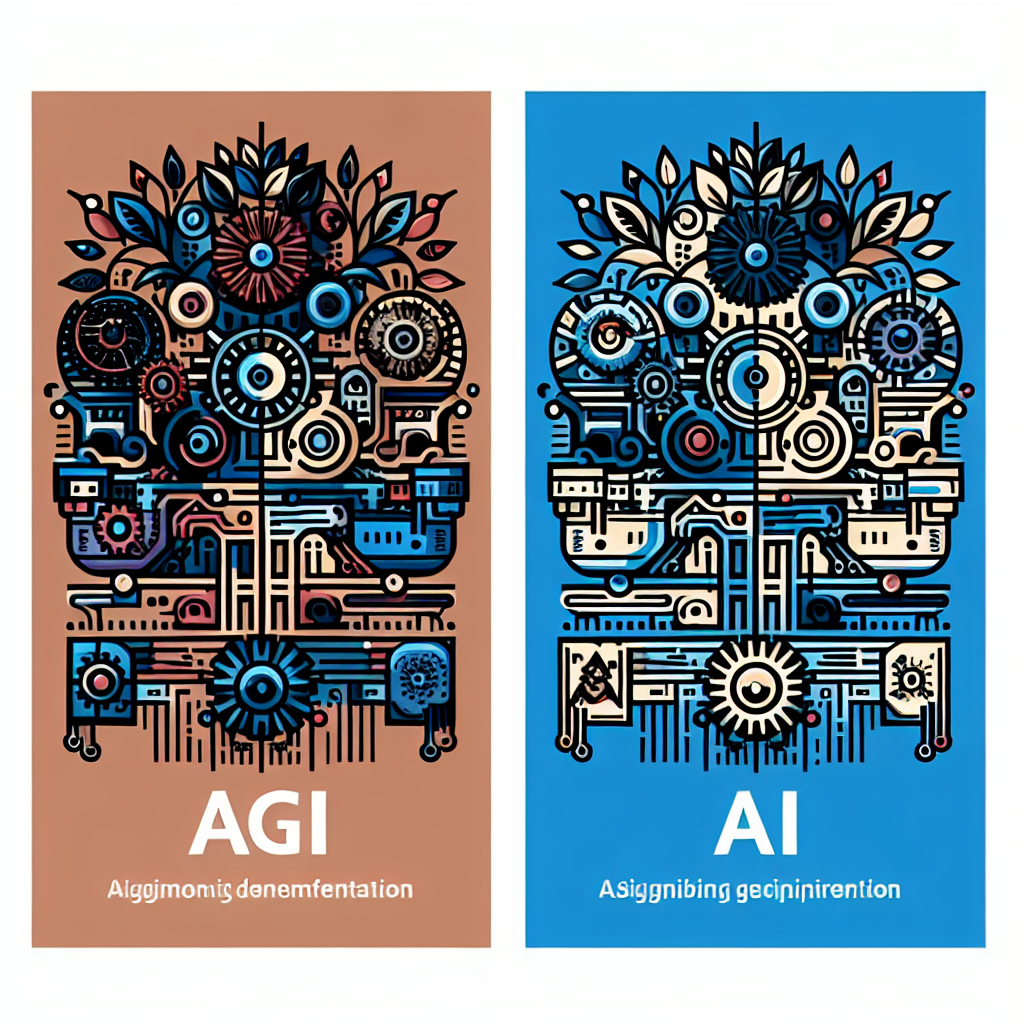Artificial intelligence (AI) is a rapidly advancing field that is revolutionizing the way we live and work. As AI technologies become more sophisticated, it is important to understand the different types of AI and how they differ from each other. One of the key distinctions in AI is between Artificial General Intelligence (AGI) and Narrow AI. In this article, we will explore the differences between these two types of AI and discuss their implications for the future of technology.
Artificial General Intelligence (AGI) is a type of AI that has the ability to understand, learn, and apply knowledge in a wide range of tasks, similar to human intelligence. AGI is often referred to as “strong AI” because it is capable of performing any intellectual task that a human can do. AGI systems have the ability to reason, plan, solve problems, and adapt to new situations. They can also understand natural language, learn from experience, and make decisions based on complex reasoning.
Narrow AI, on the other hand, is a type of AI that is designed to perform specific tasks or functions within a limited domain. Narrow AI is also known as “weak AI” because it is focused on a narrow set of tasks and lacks the general cognitive abilities of AGI. Examples of Narrow AI include speech recognition systems, image recognition algorithms, and recommendation engines. These systems are designed to excel at specific tasks, but they cannot generalize their knowledge to new situations or domains.
One of the key differences between AGI and Narrow AI is their level of adaptability and flexibility. AGI systems have the ability to learn new tasks and apply their knowledge to a wide range of situations, making them more versatile and capable of handling complex and unpredictable environments. In contrast, Narrow AI systems are limited to the tasks they were designed for and cannot easily adapt to new tasks or environments.
Another important difference between AGI and Narrow AI is their level of autonomy and self-awareness. AGI systems have the potential to develop self-awareness and consciousness, similar to human beings. This raises ethical and philosophical questions about the rights and responsibilities of AGI systems. Narrow AI, on the other hand, is not capable of self-awareness and operates within the confines of its programming.
The implications of AGI and Narrow AI for society are profound. AGI has the potential to revolutionize industries, solve complex problems, and enhance human capabilities. However, the development of AGI also raises concerns about job displacement, ethical considerations, and the potential for misuse. Narrow AI, on the other hand, is already being used in a wide range of applications, from virtual assistants to autonomous vehicles. While Narrow AI has the potential to improve efficiency and productivity, it also raises concerns about privacy, bias, and accountability.
In conclusion, the difference between AGI and Narrow AI lies in their capabilities, adaptability, autonomy, and potential impact on society. AGI has the potential to revolutionize the way we live and work, while Narrow AI is already transforming industries and everyday life. As AI technologies continue to advance, it is important to understand the differences between these two types of AI and the implications they have for the future.
FAQs:
Q: What are some examples of AGI systems?
A: Currently, there are no known examples of AGI systems. Researchers are working on developing AGI, but it is still a long way off from becoming a reality.
Q: How is Narrow AI different from traditional software?
A: Narrow AI differs from traditional software in that it can learn from data and improve its performance over time. Traditional software is static and cannot adapt to new information or tasks.
Q: What are some ethical concerns associated with AGI?
A: Some of the ethical concerns associated with AGI include the potential for job displacement, bias in decision-making, and the development of autonomous weapons.
Q: How will AI impact the job market?
A: AI has the potential to automate routine tasks and jobs, leading to job displacement in certain industries. However, AI also has the potential to create new jobs and opportunities in emerging fields.
Q: Will AGI systems be conscious and self-aware?
A: The question of whether AGI systems will be conscious and self-aware is a topic of debate among researchers and philosophers. Some believe that AGI could develop consciousness, while others argue that it is unlikely.

